Understanding multiplication Math Worksheets for Ages 6-8
31 filtered results
-
From - To
Welcome to our "Understanding Multiplication Math Worksheets for Ages 6-8" page! Designed to make learning multiplication engaging, these worksheets provide young learners with essential skills in a fun and interactive way. Through a variety of exercises, including visual aids, timed quizzes, and practical word problems, children will grasp the concept of multiplication, building a strong math foundation. With each worksheet fostering critical thinking and problem-solving skills, students can enhance their understanding and confidence in math. Perfect for classroom or home use, our collection is tailored to spark curiosity and foster a love for learning multiplication. Start exploring today!
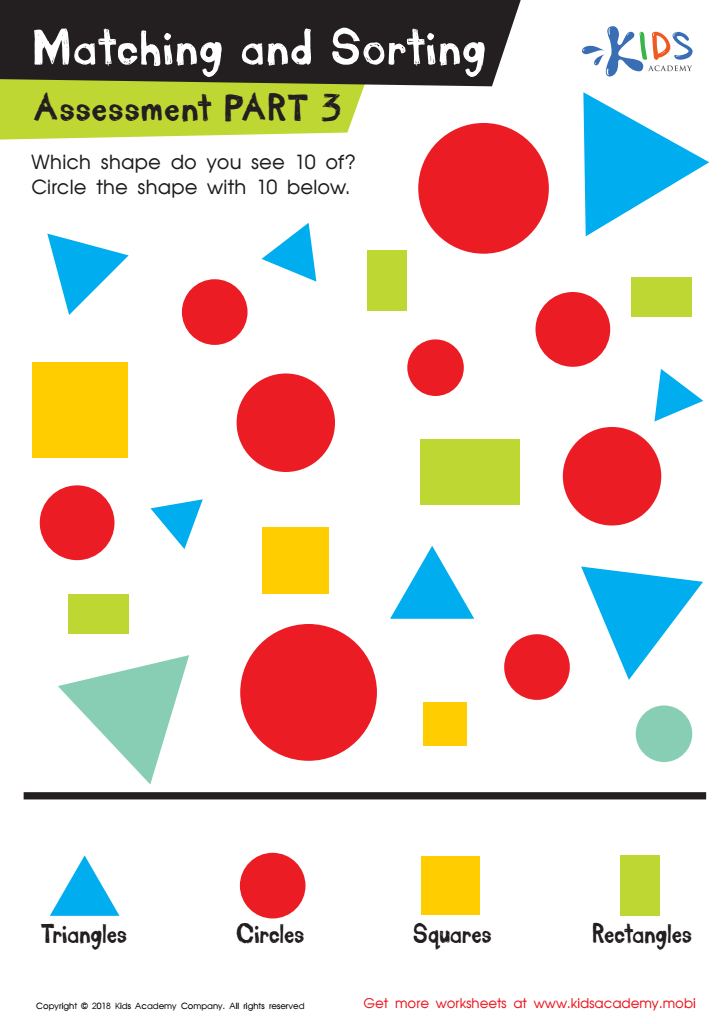

Matching and Sorting for Kindergarten: Assessment 3 Worksheet
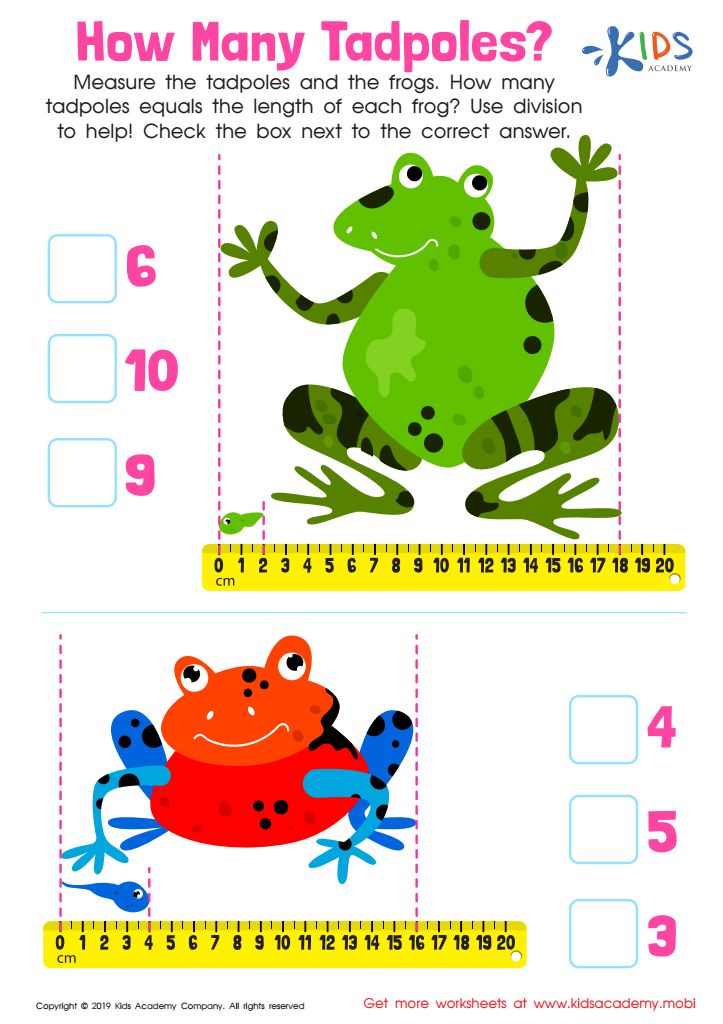

How Many Tadpoles Worksheet
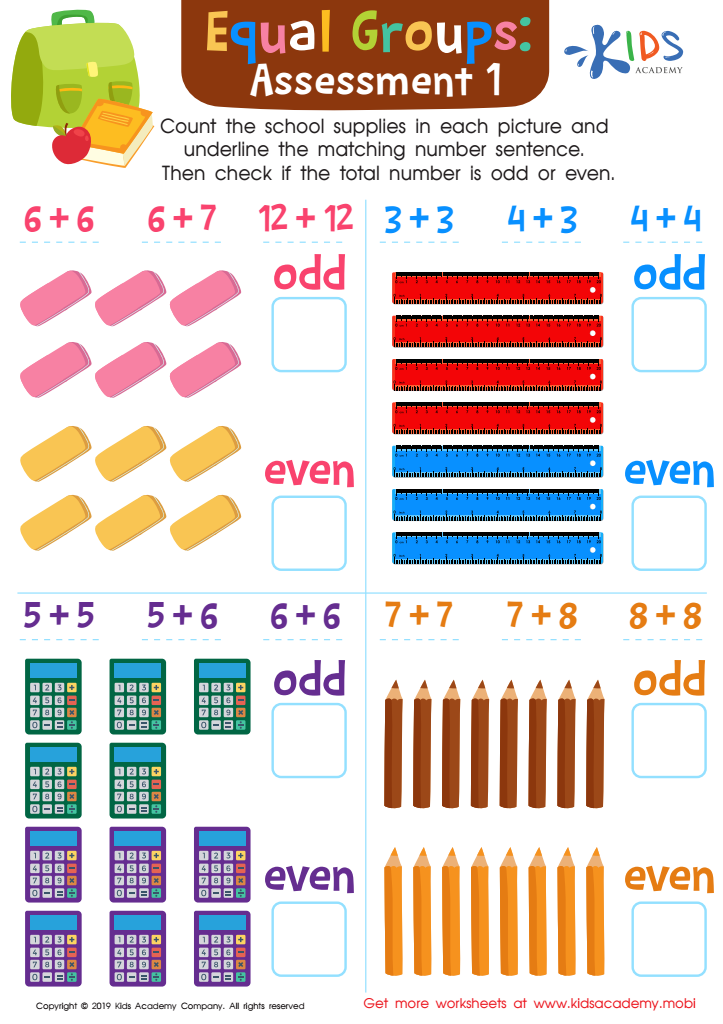

Equal Groups: Assessment 1 Worksheet
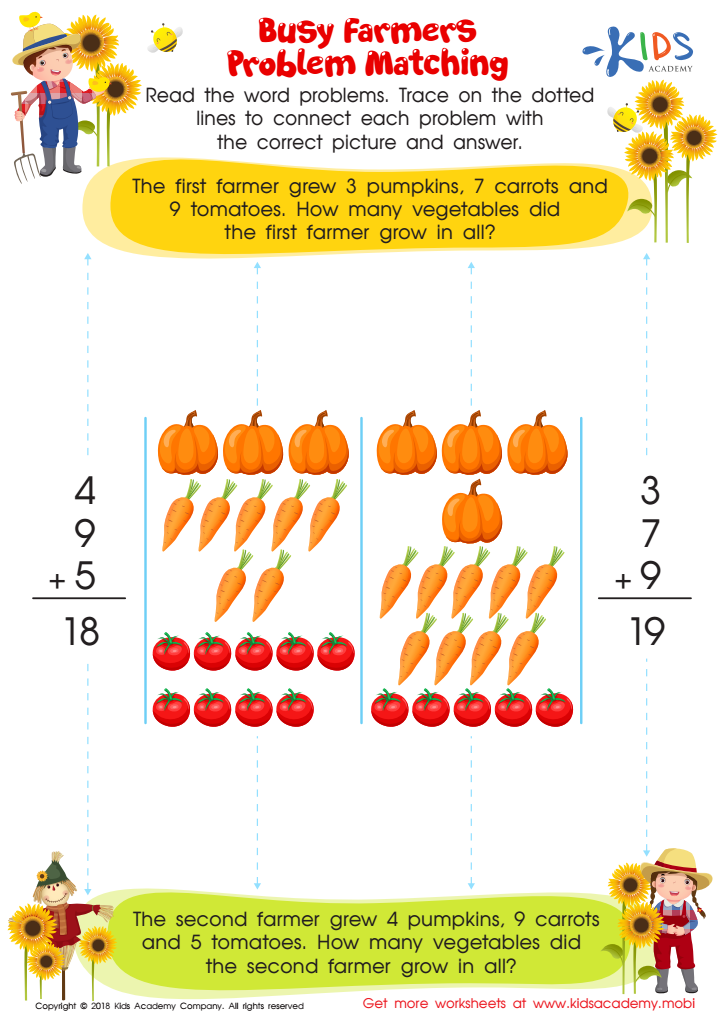

Busy Farmers: Problem Matching Worksheet
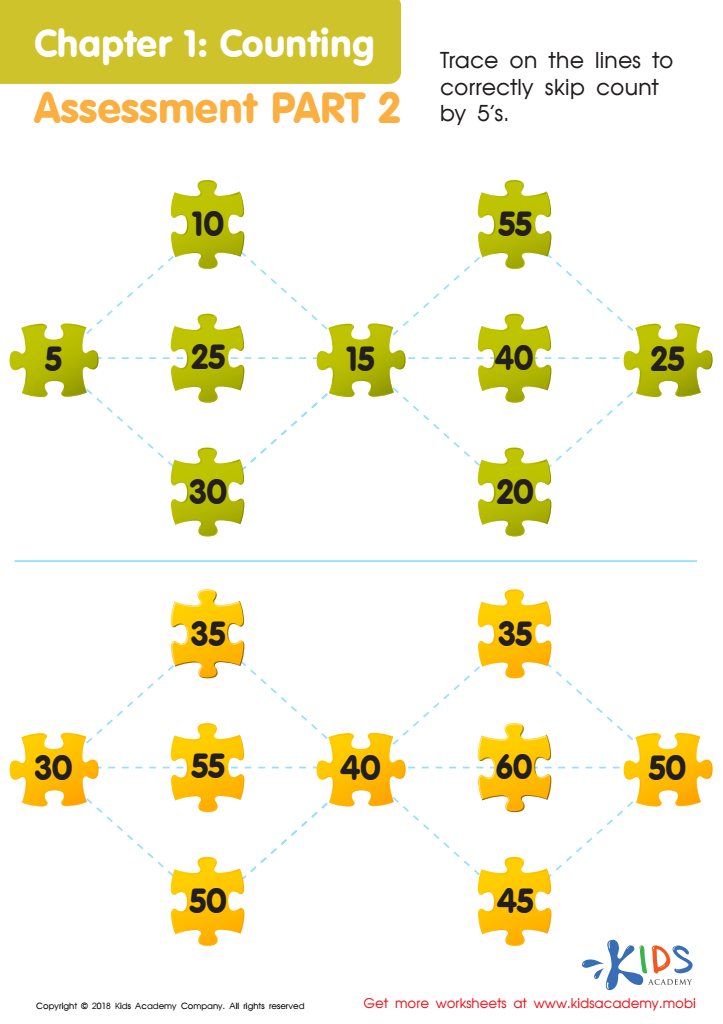

Counting: Assessment 2 Worksheet
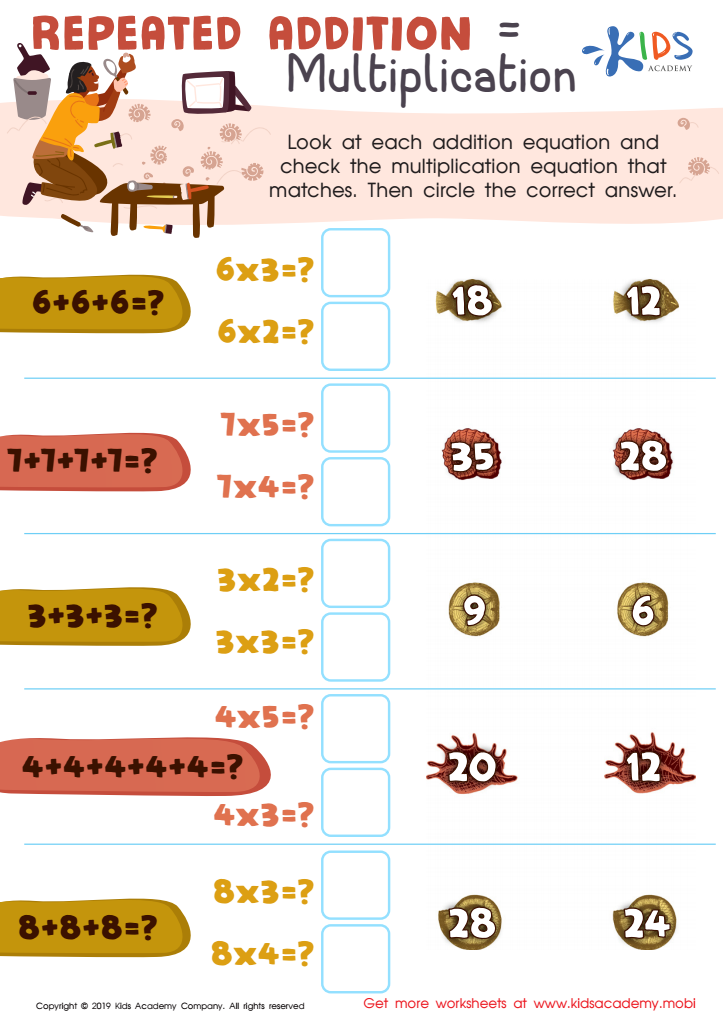

Repeated Addition = Multiplication Worksheet
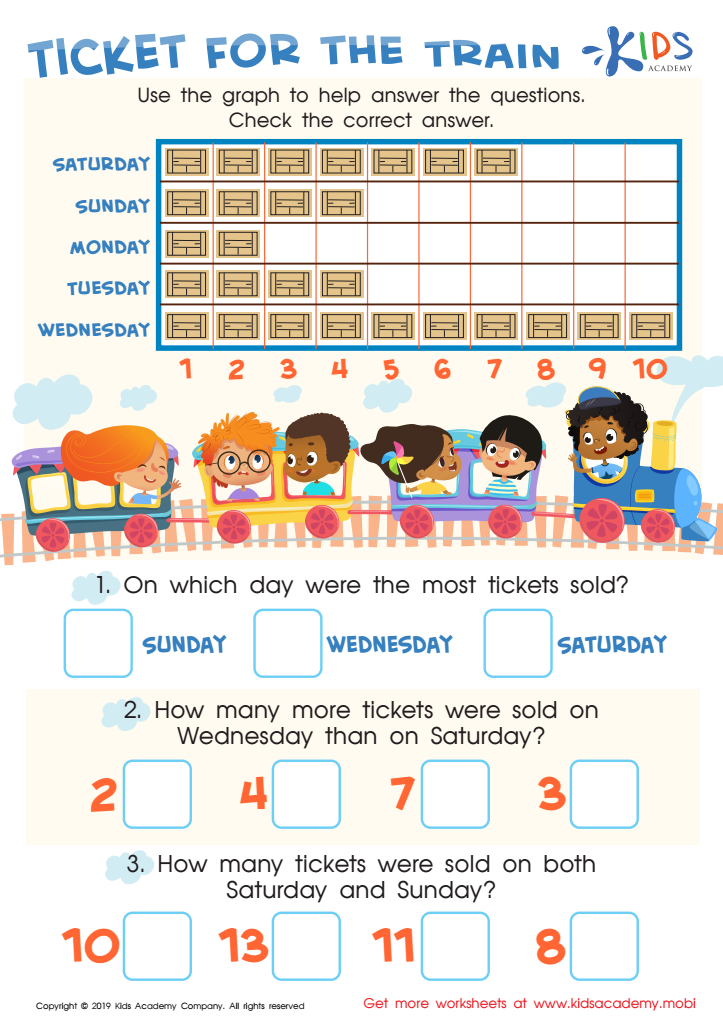

Ticket for the Train Worksheet
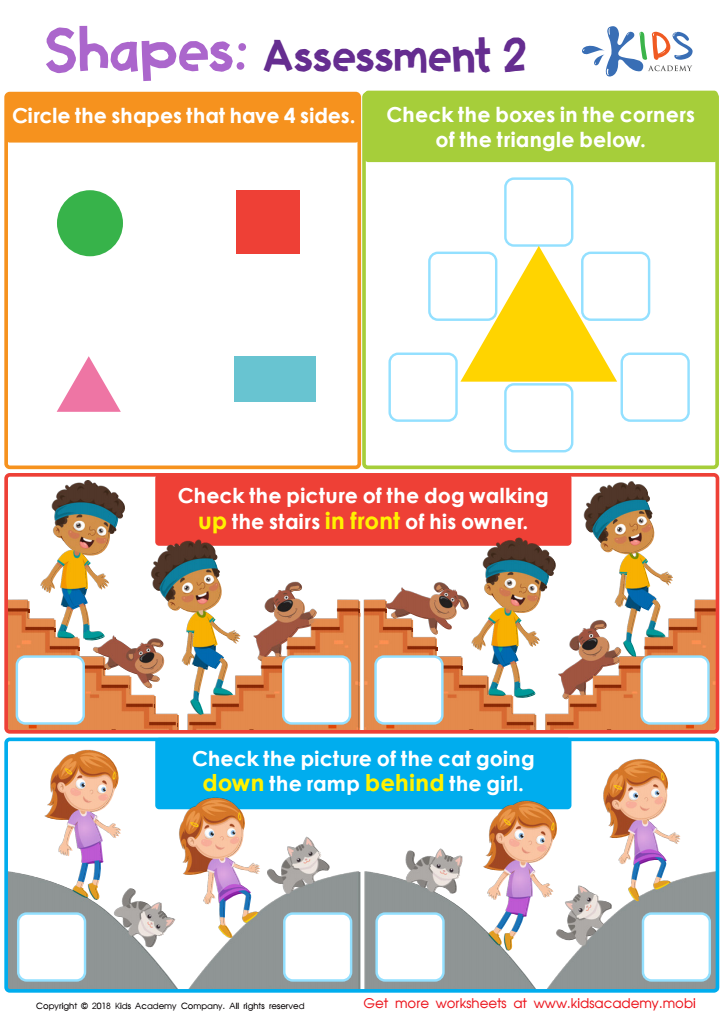

Shapes: Assessment 2 Worksheet
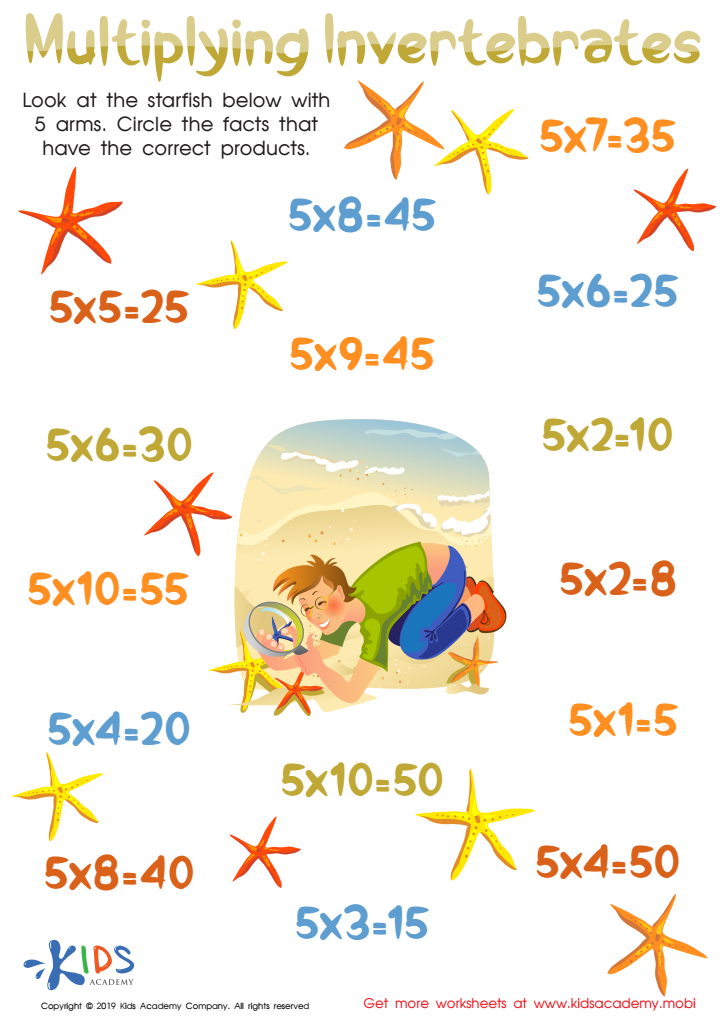

Multiplying Invertebrates Worksheet
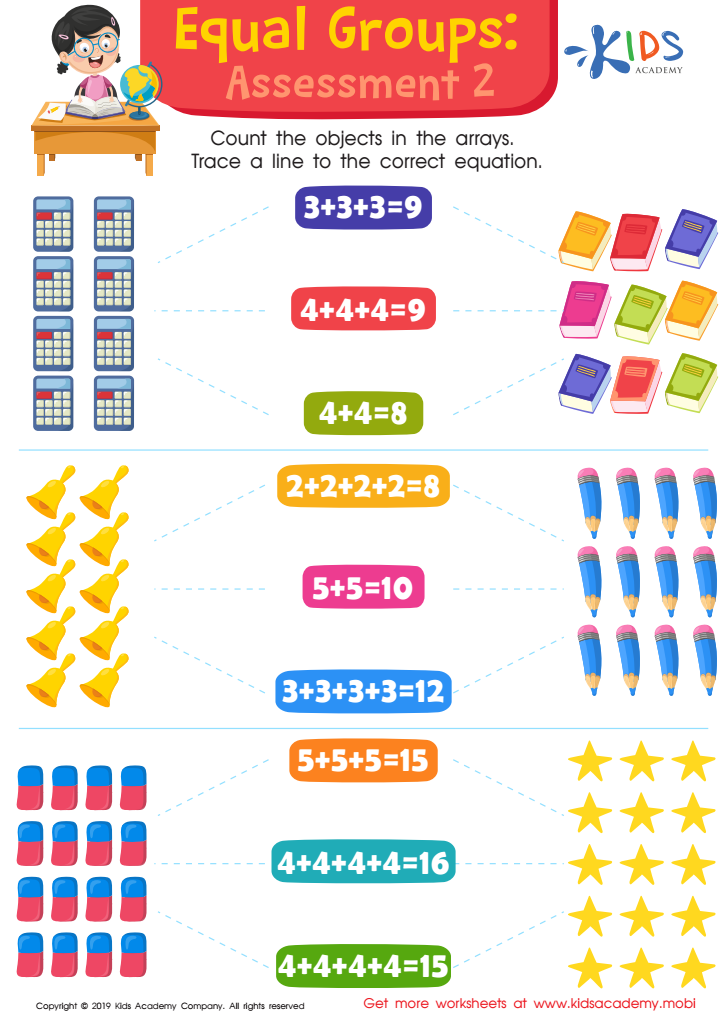

Equal Groups: Assessment 2 Worksheet
Understanding multiplication is crucial for children aged 6-8 as it serves as a foundational skill for future mathematical learning. For parents and teachers, the significance lies in fostering a positive attitude towards math at an early age. When children grasp the concept of multiplication, they build confidence, enabling them to tackle more complex operations like division, fractions, and algebra later.
Moreover, multiplication teaches children valuable life skills, such as problem-solving and critical thinking. By recognizing that multiplication is essentially repeated addition, students can better relate to everyday situations, from calculating total prices during shopping to understanding groups in their social environments.
Teaching multiplication also aids in developing mental math skills, allowing children to perform quicker calculations with practice. It prepares them for standardized testing and classroom assessments, which often rely on multiplication skills.
Emphasizing multiplication during these formative years can create lasting habits of diligence and perseverance. It is during this time that children cultivate the mindset that “math is easy and fun.” Consequently, parents and teachers play a vital role in ensuring a solid mathematical foundation, heralding a more mathematically literate generation.
 Assign to My Students
Assign to My Students




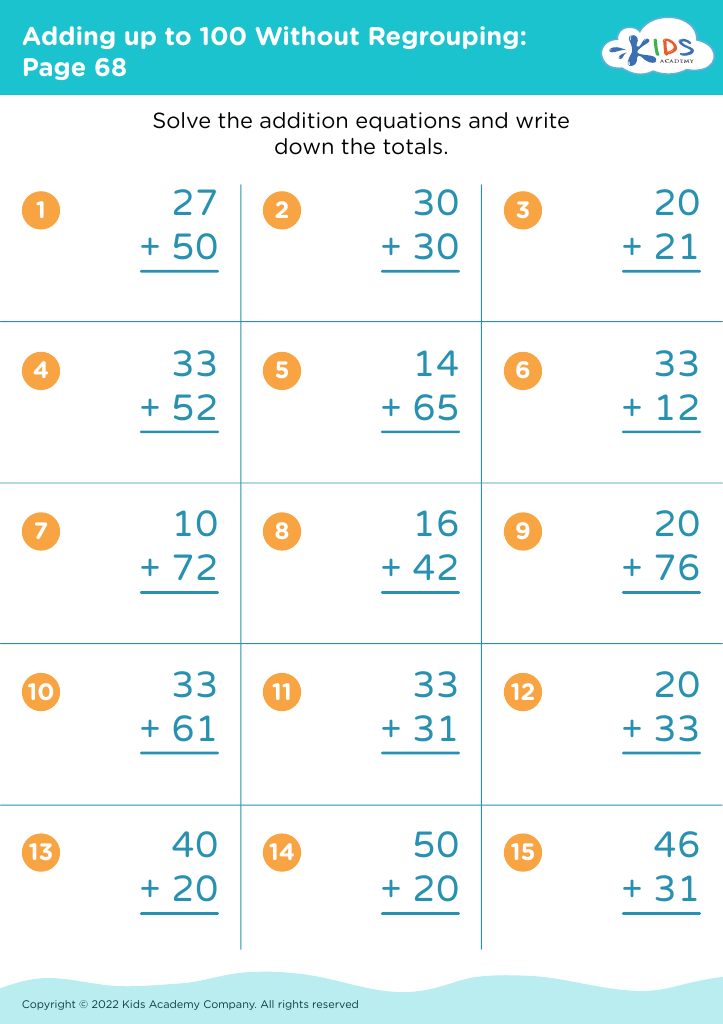
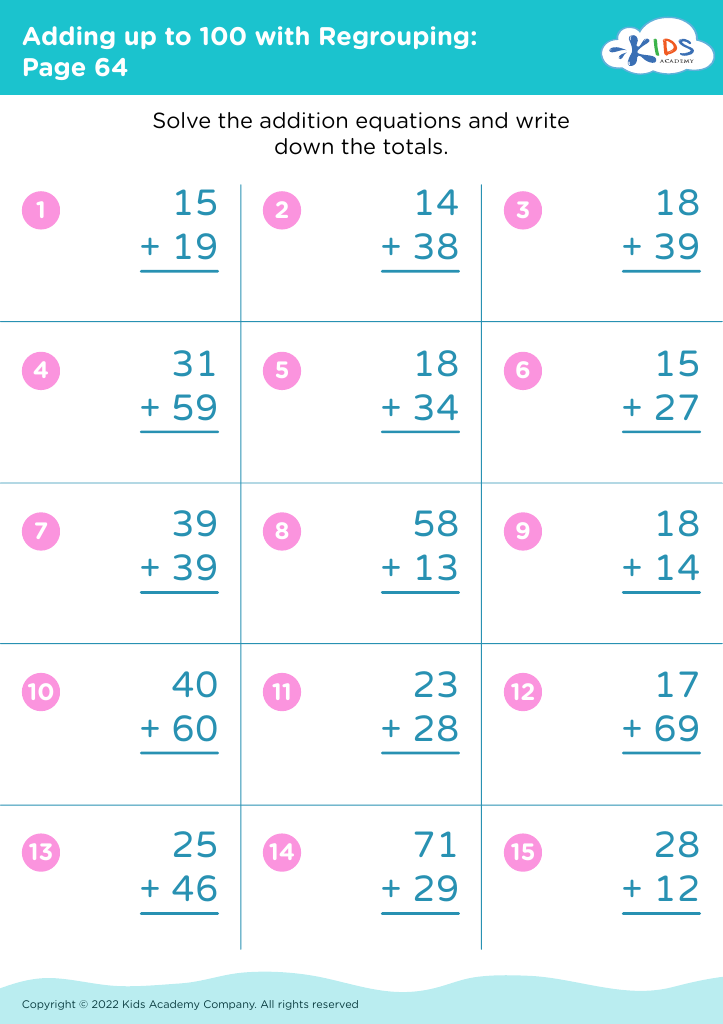
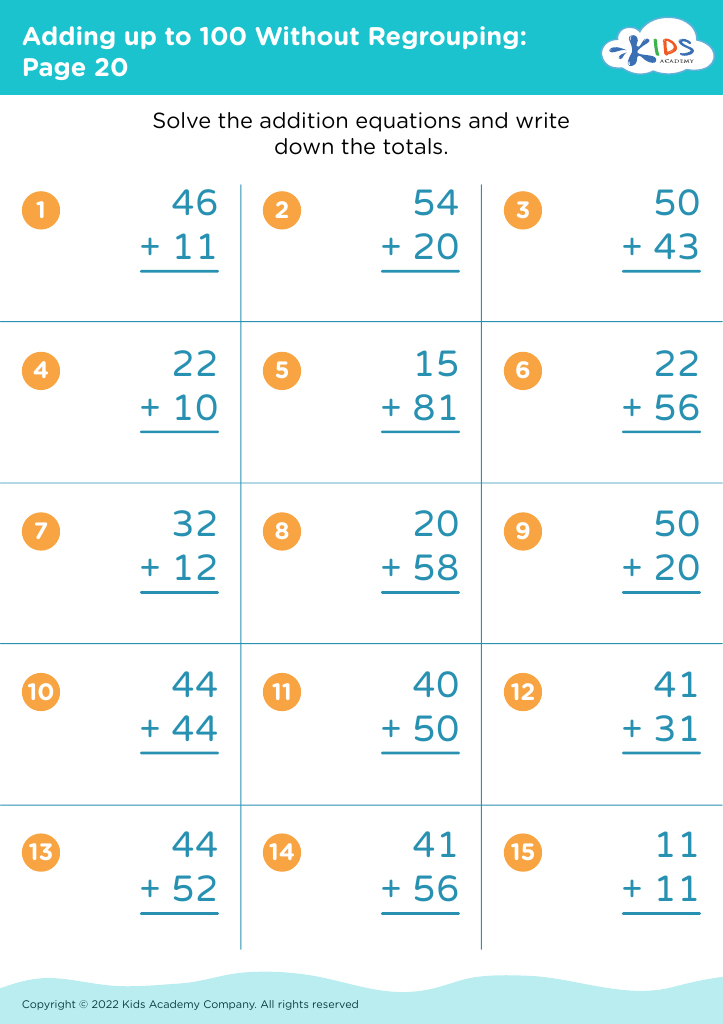

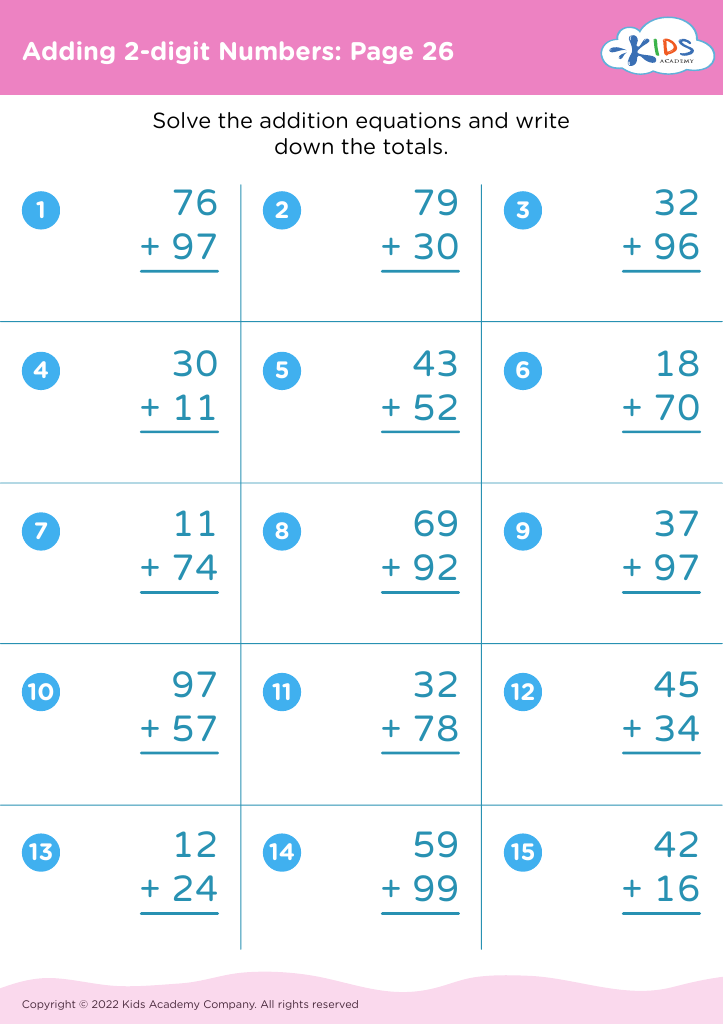
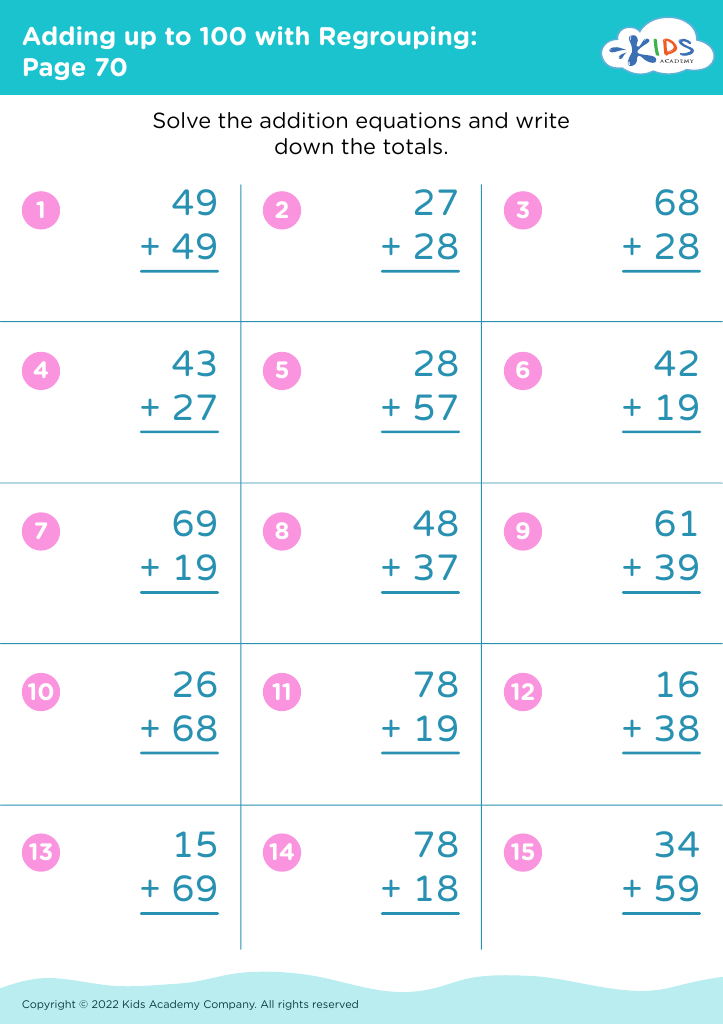
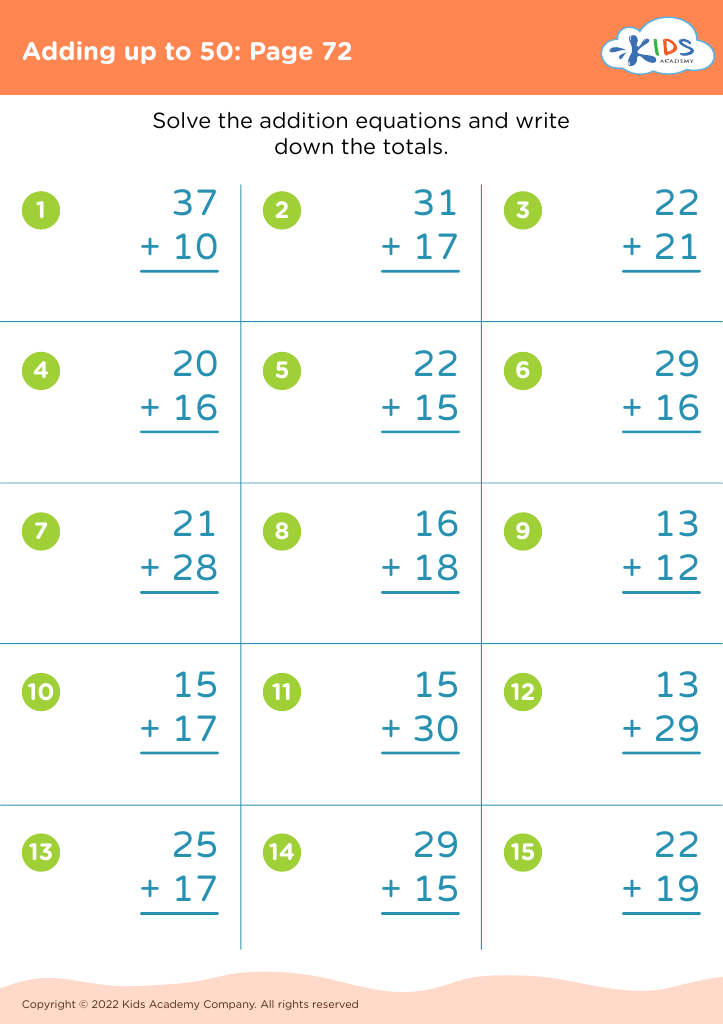
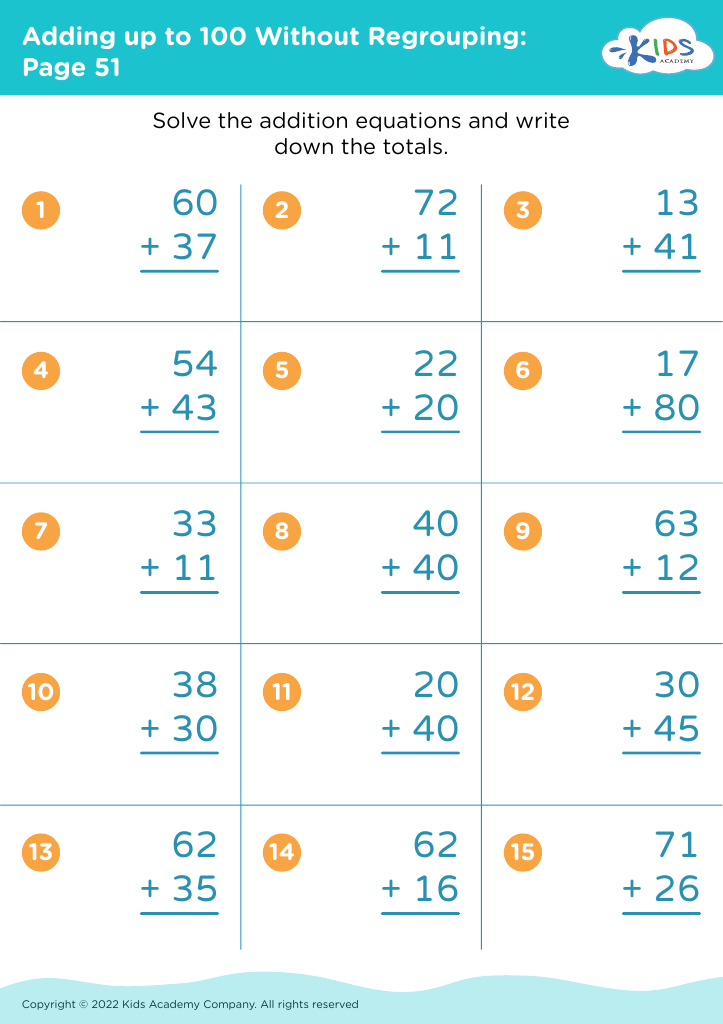



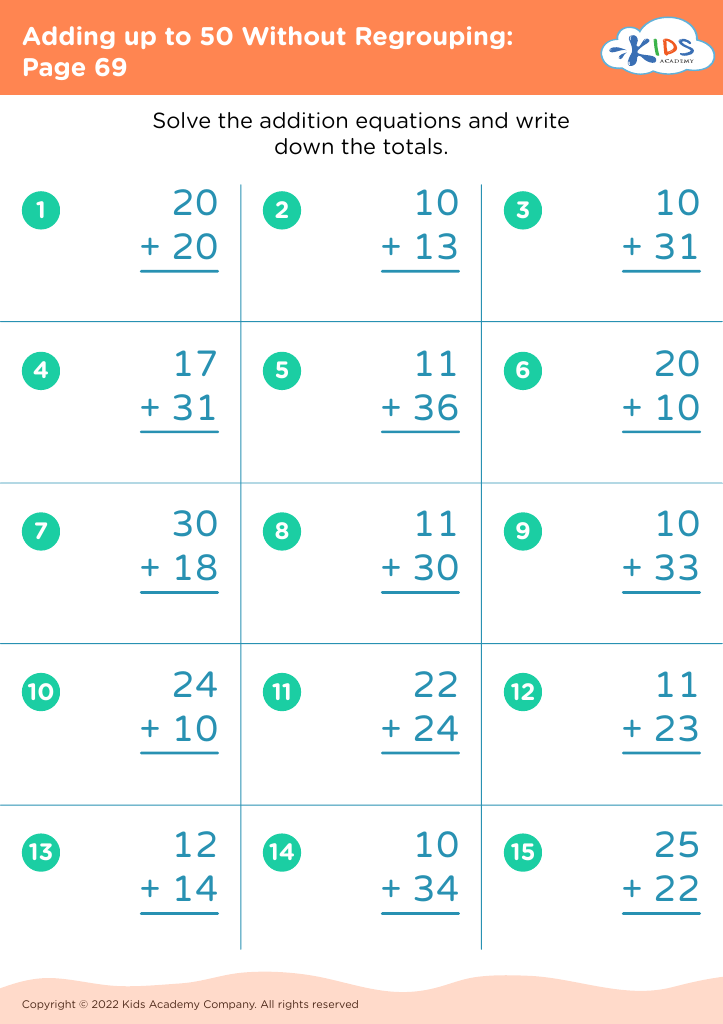



.jpg)















